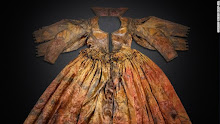During this 20th anniversary summer of Princess Diana's death, we continue to honor her contribution to the world of wedding celebrations, but this time with a deeper philosophic twist...by sharing an excerpt from my future book, From Princess to Goddess & the Rebirth of Love (the second book in The End of the Fairy-Tale Bride series.)
{excerpt from}
Chapter One: Princess Mission
Lady Diana Spencer’s glorious emergence
from the glass, horse-drawn carriage on her wedding morning in the summer of
1981 set in motion mythological musings: “a fairy-tale bride,” “a heavenly vision,” “the return of the goddess.” Dressed in
voluminous yards of custom-dyed ivory silk taffeta, lace and tulle; standing in
hand-crafted satin slippers and crowned with old family diamonds, this was
beyond any superficial longing of “princess dreams”—although dreams of being a
princess certainly fueled our imaginations.

Diana’s appeal went deeper than our
fascination with feminine beauty or brides and weddings, or with royalty and
pageantry or mysterious ancient rituals. For many watching the brilliant wedding
pomp that day, the experience stirred something deep within. Historically, the
vision of a bride often brings a sense of hope and renewal, but for a culture
in turmoil, here was a spark that relit what once thought lost. There seemed a
light about this young bride. Even if we were unaware of being affected,
legends were brewing.
Or did the anti-monarchists and second-wave
feminists and other skeptics—not taken in by romance or grandeur or even possible
divine intervention—have it right? That this was simply another wan young
woman, “shrouded” beyond recognition. From feminist writer Beatrix Campbell: “Her
ivory silk wedding dress was a shroud…a crinoline, a meringue…a symbol of
sexuality and grandiosity….” She was being led to an altar “propping up the
aged patriarch who had got her into all of this” to stand with a man much
beyond her years and experience who represented an outdated institution where
young women disappeared into desperate disappointment. “Neither her father nor
her mother had taken care of her, enlightened her or warned her. They married her
off to someone else’s prince….” ~
...................................................................

























